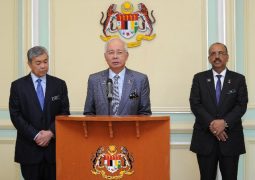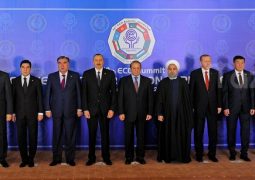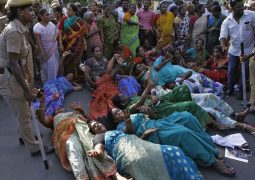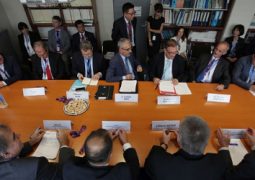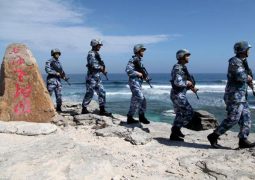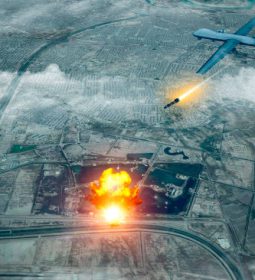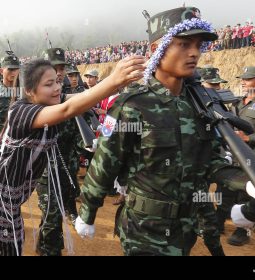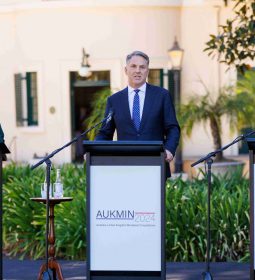Foreign military exercises in straits harm sovereignty – Malaysian expert

IN its 2017 Report on the Freedom of Navigation, the United States Department of Defence (DoD) has criticised Malaysia and 21 countries for excessive maritime claims. The US maintains that the claims have undermined freedom of navigation and contravened customary international law.
DoD has faulted Malaysia on two grounds: requesting prior notification for nuclear-powered vessels to enter the territorial sea and not authorising foreign powers to conduct military exercises in its exclusive economic zone (EEZ). Other states requiring prior notification for foreign warships to access their territorial seas are Albania, China, Croatia, India, Maldives, Malta, Oman, Pakistan, South Korea, Thailand and Vietnam.
The origin of Malaysia’s restrictions on nuclear-powered ships and military manoeuvres could be traced to a declaration it deposited with the United Nations in September 1996 following ratification of the United Nations Convention on Law of the Sea (UNCLOS).
Consistent with the Vienna Convention on the Law of Treaties (1969), the declaration reads, among others, that Malaysia “understands [that] the provisions of the Convention do not authorise other States to carry out military exercises or manoeuvres, in particular those involving the use of weapons or explosives in the exclusive economic zone without the consent of the coastal State”.
It is worth noting that the concept of EEZ is found only in UNCLOS, which the US has yet to ratify. Currently, 27 states that ratified the 1982 UNCLOS disagreed with the US and have plainly disregarded its interpretation of the law.
The US and a number of major maritime powers insist that the “international uses” in Article 87 of UNCLOS include the right to conduct military manoeuvres in the EEZ, but state practice on the matter shows significant variations.
These countries point out to the absence of provisions in UNCLOS permitting foreign countries to conduct military activities in their EEZ. Separately, they take the view that phrases in UNCLOS that mention the “rules of international law” in Article 87 (1) and of “internationally lawful uses of the sea” in Article 58 (1) do not refer to military exercises and manoeuvres, especially those involving the use of weapons or explosives, referred to in the 1996 Malaysian declaration at the UN.
As long as the activities are military in nature and the activities result in the production of data to serve the military needs and can be used against its security, they are not allowed in the Malaysian EEZ without its expressed consent. Unauthorised military activitie s are deemed not “peaceful” and prejudicial to Malaysia’s security.
s are deemed not “peaceful” and prejudicial to Malaysia’s security.
The 1996 declaration also stipulates prior authorisation for the passage of powered vessels and vessels carrying nuclear materials in its territorial sea. This restriction is targeted at vessels transiting through the accident-prone and traffic-congested Straits of Malacca.
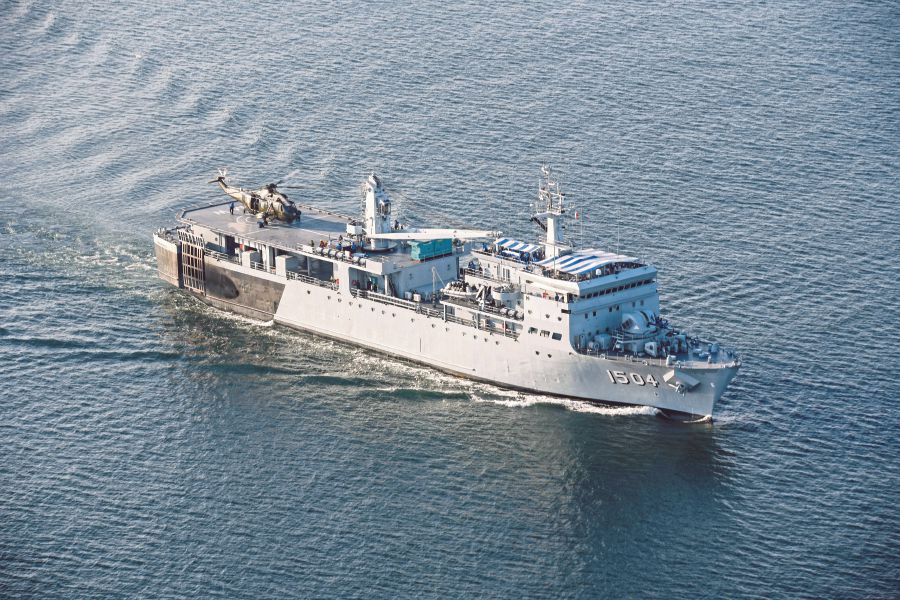
Last year, more than 70,000 vessels passed through the strait. Flag states are to assume “responsibility for any loss or damage resulting from the passage of such vessels within its territorial sea”, which are required under UNCLOS to “carry documents and observe special precautionary measures” whenever they transit through the strait.
Incidentally, Malaysia requires that deep-draught vessels and very large crude carriers (VLCCs) maintain a 3.5m under keel clearance (UKC) during the entire passage when they transit the Straits of Malacca and Singapore. These vessels must take precautionary measures when navigating through the traffic separation scheme.
This policy on deep draught vessels and VLCCs in the Straits of Malacca and Singapore is spelt out in the Merchant Shipping (Collisions Regulations) Rules for Vessels navigating through the Straits of Malacca and Singapore, Order 1984. This ordinance must be read together with a letter dated April 28, 1982 to the president of the Third United Nations Conference on the Law of the Sea requesting for deep-draught vessels and VLCCs to maintain a minimum 3.5m UKC throughout their passage in the Straits of Malacca and Singapore.
However, strangely, neither the 1982 letter to the UN nor the 1984 Rules for Vessels navigating through the Straits of Malacca and Singapore make any mention of passage of nuclear-powered vessels or vessels carrying nuclear material or other material of a “similar nature” contained in Malaysia’s 1996 declaration.
Malaysia contests the unauthorised right of foreign countries to conduct military exercises in its EEZ on the grounds of sovereignty, law and security. As a coastal state, subject to some legally accepted constraints, Malaysia has absolute sovereign jurisdiction in its territorial sea and EEZ. Such activities are a threat to the territorial integrity and political independence of a sovereign state. (Article 2.4 of the UN Charter and Article 301 of the UNCLOS Treaty.)
Secondly, there is no international law that explicitly prohibits Malaysia’s jurisdiction over foreign military activities in its EEZ. Thirdly, unauthorised foreign military activities can undermine and subvert Malaysia’s security and they can be non-peaceful in nature.
Besides, Malaysia views the 1982 UNCLOS as a treaty, applicable only to state parties. Although the treaty has come into force, not all the provisions have the force of opinio juris as customary international law, whereby states are obliged to obey, prescribe and enforce. The provision dealing with military activities at sea is one of them.
As a coastal state, Malaysia has primary responsibility and obligation to keep order at sea in its territorial jurisdiction. Unauthorised military activities go against the very grain of this primary obligation and undermines the rights of coastal states’ jurisdiction in UNCLOS with regard to military activities in the EEZ. RSIS
The writer is a lecturer with the
Department of Strategic Studies,
National Defence University Malaysia, Kuala Lumpur. He is also an adjunct research professor,
National Institute of South China Sea Studies, Haikou, China



